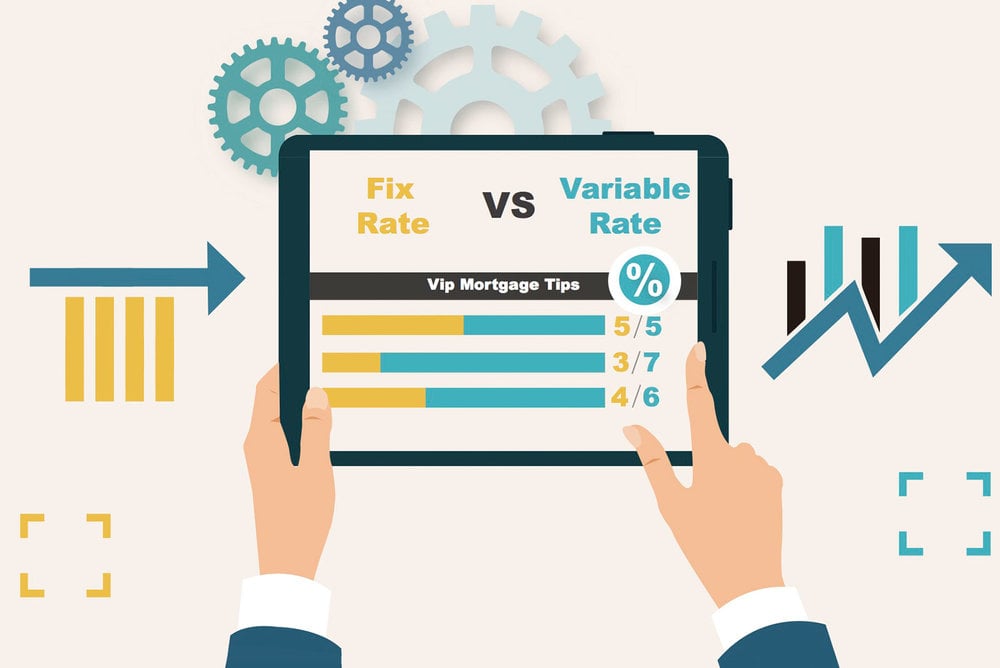The Federal Reserve recently announced that it plans to raise interest rates over the next couple of years gradually. While this may seem like good news to some people, it’s very bad news for small business owners who are unprepared and don’t know how to cope with rising interest rates.
As interest rates increase and are predicted to continue growing in the near future, it’s now more important than ever to prepare your small business for the upcoming changes to the interest rate environment.
And yes, that includes understanding how rising interest rates affect your business from both a financial and cash flow perspective.
The Fed is raising interest rates because of a variety of factors, including an improving economy and a stronger dollar. While it’s unclear exactly how much interest rates will increase over time, there are several things you can do to prepare your small business for rising interest rates.
But first things, who is the head of the Federal Reserve, and what’s their responsibility in the economy?
Jerome Powell Heads the Federal Reserve
On February 5, 2018, Jerome H. Powell assumed office as chairperson of the Board of Governors of the Federal Reserve System for a four-year tenure. Chair Powell is also head of the Federal Open Market Committee (FOMC), which is in charge of formulating the system's primary means of conducting monetary policy.
Since his appointment to the Board of Governors on May 25, 2012, Mr. Powell has been part of the FOMC. On June 16, 2014, he was reappointed to the board and sworn in for another four-year term.

In accordance with federal law, the chair of the Federal Reserve must testify before Congress two times a year on the monetary policy and objectives of the central bank. The chair also has regular meetings with the president's Cabinet members and the Treasury secretary.
As the head of the Federal Open Markets Committee, Mr. Powell chairs the setting of the monetary policy. It is one of their most essential responsibilities.
In 2022, the Fed will likely raise interest rates because of the 7.5% increase in inflation in 2021. An increase in interest costs could spell disaster for small businesses already operating on small margins.
Here are seven ways to prepare your small business for rising interest rates.
1. Add More Income Streams
There are a few ways to diversify your income so that if one stream dries up, you won’t have to worry about going under.
One of those ways is through passive income, which can be generated by investing in stocks, bonds, mutual funds, or other more sophisticated investment vehicles.
However, it’s important to consider that investing in traditional investments has been changing drastically over recent years because of how big money has flowed into them from investors like you.
Today, there are fewer stock market speculators, and more long-term investors who want to buy companies they know will do well even five or 10 years down the road.
That means it’s safer than ever to invest in stocks. But there’s also less opportunity for huge gains than there was before. Still, as long as you don’t put all your eggs in one basket (so to speak), you can get ahead without taking too much risk with any single investment.
2. Fixed Rates: Switch From Variable-Rate Loans to Fixed-Rate

Variable-rate loans, such as lines of credit and mortgages- are commonly offered at the prime rate plus a few percentage points. With prime at around 8%, it means your loan interest rate will fluctuate with economic conditions.
That makes these loans risky for small businesses because your monthly payments could go up with an increase in interest rates. So you should consider refinancing any variable-rate loans into fixed-rate ones if you can lock in a good rate today before rates climb higher.
A longer term on your loan also helps protect against rising rates. The longer you have to pay off a loan, the more time you have to benefit from lower interest rates if they fall again.
3. Pay Your Debts Now
If you have outstanding business loans, then it’s time to pay them off immediately. When interest rates rise, so will your monthly payments on these debts.
And if you can’t afford that higher amount, your credit score will take a hit, and banks may cut off your line of credit or even start foreclosure proceedings on any property that secures your loan.
The faster you can eliminate debt from your balance sheet and reduce future liability, the better positioned you are for an increase in interest rates.
Pay Off Short Term Business Debt First
While interest rates are set to rise, you should still strive to pay off your short-term business debt (i.e., any debt that has a maturity of one year or less) before paying down any long-term debt.
A short-term business loan with a 3% interest rate is more costly than a 10-year loan at 2%, so unless you’re holding out for an incredibly low-interest rate on your next deal, get rid of those high rate debts first. You can always refinance them later when interest rates go up.
4. Explore Alternative Financing Options
In the past, businesses had a limited range of funding options available to them. Even though traditional term loans from well-known banks were the norm until recently, there are now a plethora of other options available.
You can raise money for your small business through SBA loans, merchant cash advances, invoice factoring, and equipment financing. These options can often provide a more cost-effective option than traditional lending institutions.
Although interest rates on these financing methods are expected to rise, they may be a better option for some businesses and provide you with more flexibility in meeting your requirements.
5. Apply for a Loan Now, Before the Rates Go Up
You should never take money if you don't need it. But if you anticipate needing money at any point over the next few months, you should do so now before rates for commercial credit climb even higher.
Having a few-month delay in securing financing could cause you to incur thousands of dollars in interest rates by the end of the year, even if you don’t need the funding now. However, if you moved quickly, you would get a jump on higher rates.
In addition, if your company's financial health is strong and you have been able to pay off your previous loans early, then apply for a loan now while interest rates are still low. This way, when business picks up again, you’ll be able to make payments easier with increased cash flow.
6. Sell Equity to Raise Additional Capital
If you’re finding it hard to get loans and credit lines because of an economic downturn, or if banks are tightening their lending standards, you may want to consider selling some equity in your business.
That doesn’t necessarily mean selling a majority stake; you can also ask employees and partners to sell equity back to you in exchange for cash. As long as you have enough capital left over after paying them off, it might be easier to convince people that they’ll be better off with partial ownership of your company than with full ownership of nothing.
Just make sure you have everything in writing before entering into any agreements. Otherwise, there could be major problems down the road.
7. Consult Experts
The best way to prepare for rising interest rates is to ask business advisors what you should do. There are a variety of professional organizations and government agencies that offer small business advice.
Ultimately, in particular, the SBA and SCORE have tons of experience providing small businesses with valuable guidance in preparation for all sorts of problems, like rising interest rates.
Consult with financial professionals who have experienced the highs and lows of previous interest rate cycles to ensure you're ready to weather any storms.
You can also read up on ways to minimize your exposure by studying case studies of companies that were not prepared and crushed by a rise in interest rates.
 Final Thoughts
Final Thoughts
Following the devastation caused by the coronavirus and the lockdown, the country is finally showing signs of recovery. The stock market has begun to rise again, housing prices have started to level off, and the manufacturing sector is expanding.
With all of these economic indicators pointing to a promising future, it's difficult to believe that danger lurks around every corner. As it emerges from the shadows cast by the coronavirus, the economy, in particular, is fragile but resilient.
Preparing your small business for an interest rate increase does not have to be difficult, but it does require some forethought.
Interest rates and your ability to borrow money will fluctuate depending on several factors, including the state of the economy, what the Federal Reserve does with its interest rate policy, and other factors.
On the other hand, the methods listed above can help you and your small business prepare for rising interest rates.
COMMENTS
Want to continue the discussion? We'd love to hear from you!